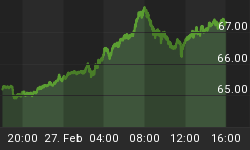Deflation is largely a psychological phenomenon and it is gaining momentum as consumers and corporations delever. The Federal Reserve is trying to overcome deflation by continuing quantitative easing, such as the recent announcement that it would reinvest its maturing bond holdings into Treasury securities. However, this policy is problematic because falling interest rates are reinforcing the deflationary psychology among investors and the general public. Additionally, there are negative economic consequences from low interest rates such as lower profits for financial companies and lower interest income for the population's savers. Although the Federal Reserve is trying to avoid the pitfalls that have plagued the Bank of Japan in its battle against deflation, the Fed's actions could have the opposite effect of accelerating an American version of Japanese-style deflation.
At the time of the Federal Reserve's initial round of quantitative easing in March 2009, both mortgage and corporate bond yields were high enough that the Fed's asset purchases did not hurt the business models of banks and insurance companies. However, as many bank and insurance company earnings have demonstrated in the second quarter of 2010, interest rates are now so low that businesses are being negatively impacted by shrinking bank lending spreads and declining portfolio yields. Company earnings are likely to remain under pressure as interest rates have continued to fall since the end of the second quarter. Companies that face profit headwinds are unlikely to feel optimistic about the future and thus will not expand their businesses or hire new employees.
Low interest rates also impact the economy in the same way as rising gasoline prices. Consumers have less money to spend when gasoline prices rise. Similarly, low interest rates crimp savers' incomes. After interest rates reach a certain low level, the incremental benefit to borrowers from further rate declines is outweighed by the lost income for savers. Therefore, this is one of the reasons that bond fund inflows have exhibited bubble-like tendencies since last year despite near record or record-low bond yields.
The Bank of Japan is often criticized for having moved too slowly at the onset of deflation. This has led the Federal Reserve to act quickly, but as a result the Fed has created corollary problems. The Bank of Japan's gradual lowering of borrowing costs allowed banks, insurance companies, and savers to earn higher levels of interest for a longer period than so far in the US. Additionally, low interest rates have caused investors and market commentators to focus on the possibility of deflation sooner than the Japanese. Publicity of falling prices makes it more difficult for the Federal Reserve to overcome the psychological component of, and thus prevent, deflation.
The Federal Reserve is trying to fight deflation by keeping interest rates low for an extended period and by accumulating fixed income securities. Lower interest rates are acting as a headwind, rather than a stimulant, by reinforcing deflationary psychology. Investors should not assume that more action by the Fed will necessarily boost asset prices and should instead consider how additional action could reinforce price declines.















